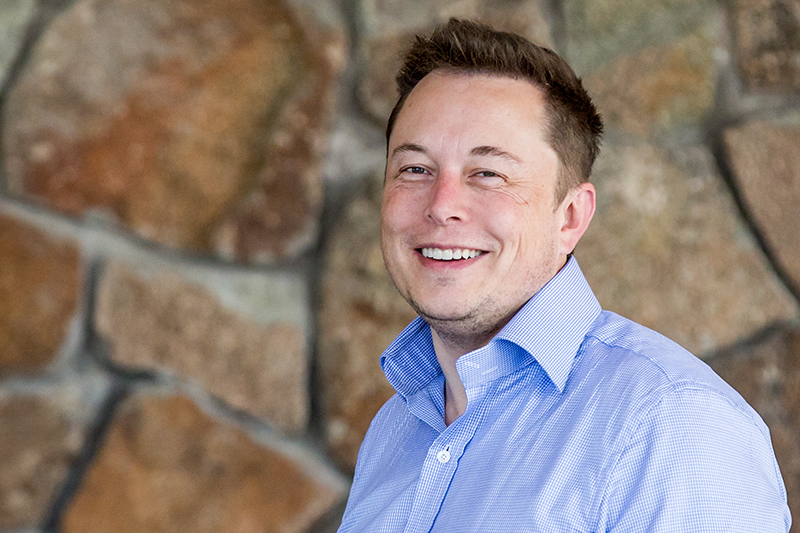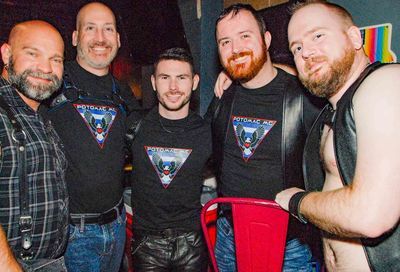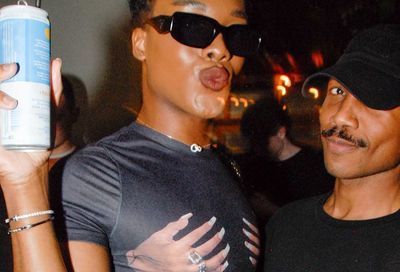Israel May Allow Same-Sex Couples to Adopt
An Israeli Supreme Court Justice announced the court’s intention to amend the laws to allow same-sex couples to adopt.

The Israeli Supreme Court is poised to allow same-sex couples to adopt children, six years after the government promised to amend its laws.
After a Wednesday, Aug. 2 hearing, Justice Uzi Vogelman announced the court’s intention to intervene in Israel’s discriminatory adoption law that defines a suitable couple for adoption as “a man and his wife.”
“It’s impossible to avoid a judicial interpretive decision in this case,” Volgelman said.
While many have tried to push this issue in the Knesset, it remains blocked. Activists and politicians believe the current right-wing coalition, headed by Prime Minister Benjamin Netanyahu, cannot bring meaningful reform.
Like the U.S., this only leaves the Supreme Court as a viable path to legal reform.
History
Israel’s child adoption law passed in 1960 and uses a narrow definition of a couple.
The adoption law (Clause 3) states that “adoption shall not take place except for by a man and his wife together.”
There are exceptions. “The courts are permitted to grant an adoption order for a single parent whose partner adopted a child or if the child’s parents died and the single parent in question is a relative of the child,” The Jerusalem Post reported.
In 2017 two couples, backed by The Israeli Association for the LGBTQ Community, The Israel Religious Action Center, the Gay Dads movement, the Agudah – The Association for LGBTQ Equality in Israel, Open House for Pride, and Tolerance in Jerusalem, petitioned the government and the High Court to allow same-sex couples to adopt.
As a response, the state argued that same-sex families were “exceptional” and could “overburden the child.” This resulted in a significant public outcry, and the state backtracked, acknowledging that the law discriminated against same-sex couples and promising to amend it.
In 2019, then-Justice Minister Amir Ohana proposed a new bill to address this discrimination, but it failed to advance.
The petitioners then moved to the High Court. They asked the court to interpret the law in a way that allows same-sex couples to adopt. In doing so, they hoped the court would consider adding a statute to the law to “make it conform to the Basic Law – Human Dignity and Liberty,” The Jerusalem Post reported.
Israel’s Basic Law consists of several sections that are used as basic guiding principles, similar to the United States Constitution.
As of now, the adoption law remains unchanged, Haaretz reported.
Why the High Court is Taking Action Now
Last year the former Justice and Welfare Ministers Gideon Sa’ar and Meir Cohen signaled their support for abolishing the discriminatory parts of the law, either through the Knesset or court determination.
Before the Supreme Court could consider this, the government collapsed.
Afterward, the state requested to withdraw any hearing on the appeal of the adoption law and “present its position several months after the elections,” Haaretz reported.
Now, less than two weeks after the Knesset voted to weaken the High Court, the court has taken the initiative on this matter.
This comes as Justice Minister Yariv Levin noted that in “the existing circumstances, there is no political feasibility in the near future to advance governmental legislation on the matter.” Therefore it is up to the Supreme Court to amend the law.
Now, at the start of this session, Volegman said “he would treat [the adoption law case] as if an order had been issued against the state to explain why the law has not been amended, giving precedence to the state’s representatives to present their case before the petitioners.”
Government Response to the Petition
The Attorney-General, Gali Baharav-Miara, offered a legal opinion piece on the adoption law to the Supreme Court as part of the government’s response.
She notes the law is fairly clear-cut when it says, “Adoption shall not take place except for by a man and his wife.” Yet she argues the full line reads “…a man and his wife together.”
By using the word together, coupled with the fact that in the exceptions section, the law specifies “a single” parent, Baharav-Miara argues the legislation is making a distinction between adoption by an individual versus a couple and not by the constitution of the couple.
She continued that if the phrase “a man and his wife” were sufficient to convey the intention of the legislation, then “together” would not be needed. She argues the addition of “together” changes the meaning of the preceding phrase from focusing on the kind of couple to couples in general.
“Hence the legislator gave special weight and emphasis to the word ‘together,’ in a way that teaches about the internal purpose of the adoption law which is focused on the good of the child and on finding a stable family unit for him consisting of two parents, if possible,” Baharav-Miara said.
There is no indication that the legislator was considering the question of same-sex couples, meaning “that there is no indication that the legislator had any active or clear intent to exclude same-sex couples,” The Jerusalem Post paraphrased her argument in an article.
Baharav-Miara points out that in 2016, legislators switched to a more neutral term when dealing with the foster care system, expressly allowing same-sex couples to foster children. She also notes that many foster parents end up adopting. Allowing same-sex couples to adopt would “[ensure] greater legislative harmony and coherence” between the foster care laws and adoption laws, The Jerusalem Post reported.
She stressed the “essence” of the law concerns child welfare, not the recognition of one kind of family unit over another.
The Attorney-General also cited a High Court opinion which stated that “We will go back and state the obvious — in the field of child adoption, as in the context of dealing with the affairs of minors in general, the supreme principle and the ‘North Star’ is the principle of the best interests of the child.”
The Supreme Court must then consider the law in terms of their “North Star” — a child’s best interest, and not the definition of a couple. The line about “a man and his wife” would not reference the sexes of the couple but the fact that there are two people. In shifting the focus of the law, LGBTQ couples would no longer be excluded from adopting.
Baharav-Miara continued by urging the court to allow the continued practice of individual discretion in each adoption case, per what is best for the child as understood by child services.
Yet the Jerusalem Post notes with the current structure, numerous investigations have found that “child services continue to discriminate against same-sex couples.”
The Attorney-General’s opinion is not universal in the government. The Minister of Welfare, Yaakov Margi of the ultra-Orthodox Shas party, is diametrically opposed to the Attorney-General.
The Welfare Minister is the head of the Ministry of Labor, Social Affairs, and Social Services, which oversees child protective services.
“A child that is given up for adoption carries on his back complexities and difficulties, both from the very fact that they are an adopted child and because of the circumstances of their life and the circumstances that led to them being adopted,” Margi wrote.
“In this situation, a transfer [of an adopted child] to a same-sex family unit could add additional complexities to their life. There is great importance in transferring a child to a family unit that is most similar to the one they came from, for a child given up for adoption there is no possibility of preserving the identity of the biological parents and therefore an effort should be made to preserve as much as possible the way of life and family framework in which they were born.”
The minister’s disagreement does not prevent the court from ruling in favor of the petitioners and Attorney-General.
Reactions
The chair of the Agudah, Hila Pe’er, responded to Baharav-Miara, saying “There is no clearer example of the importance of an independent court that will protect the rights of the LGBTQ community. Faced with the shameful and homophobic position of the welfare minister, we see once again that only the High Court of Justice can act for equal rights.”
“While the government openly says that it is depriving us of basic rights, we expect the High Court to abolish this discrimination once and for all — as the state promised six years ago and did not do.”
Jonathan Vilfer, the Chairman of Open House in Jerusalem, stated that “the Israeli government engages in discussions and asks the High Court to protect the rights of the LGBTQ+ community because it fails to do so itself.”
Attorney Ricky Shapira-Rosenberg, representing the couples, stated that “an opportunity was given to the Knesset to legislate, but it didn’t happen. Now, the petitioners are turning to the High Court and asking it to interpret the law more broadly by using the word ‘together’ as referencing a two body household.
“The interpretation of ‘man and his wife together,’ encompassing same-sex couples, [and] serves the law’s purpose because it sought to emphasize the stability the child would receive …whether the parenthood is single-sex or not is irrelevant.”
Haaretz will live stream the final hearing when it is scheduled.
Support Metro Weekly’s Journalism
These are challenging times for news organizations. And yet it’s crucial we stay active and provide vital resources and information to both our local readers and the world. So won’t you please take a moment and consider supporting Metro Weekly with a membership? For as little as $5 a month, you can help ensure Metro Weekly magazine and MetroWeekly.com remain free, viable resources as we provide the best, most diverse, culturally-resonant LGBTQ coverage in both the D.C. region and around the world. Memberships come with exclusive perks and discounts, your own personal digital delivery of each week’s magazine (and an archive), access to our Member's Lounge when it launches this fall, and exclusive members-only items like Metro Weekly Membership Mugs and Tote Bags! Check out all our membership levels here and please join us today!


























